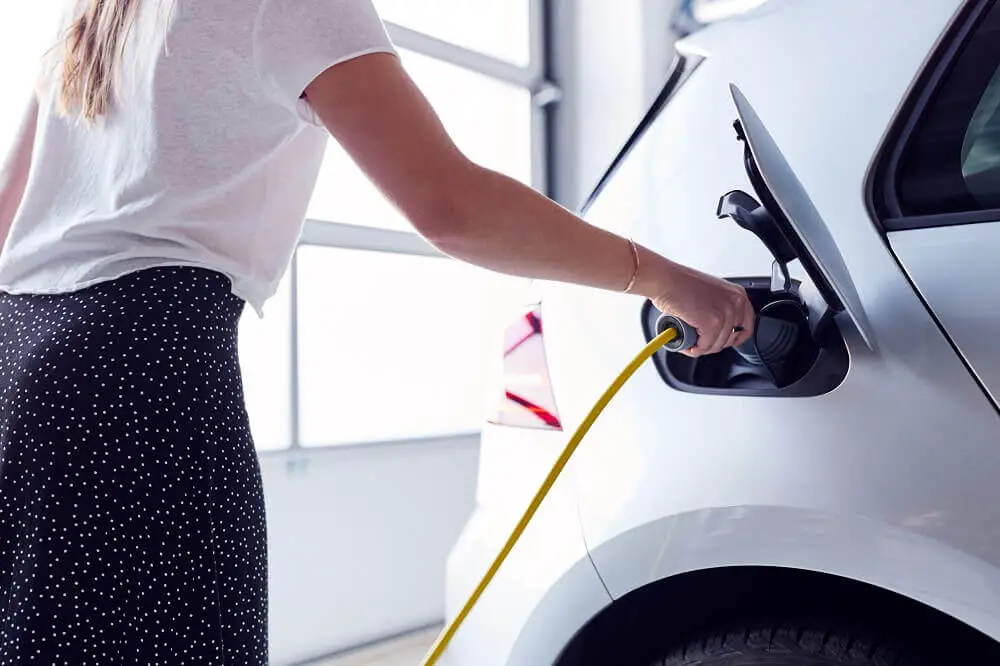Electric vehicles are the future, with there being government support in place to actively encourage people to make the change and plans in place to make life as an EV driver far more accessible in the UK. On top of the gradually increasing number of public EV charging points, charging an electric car at home has never been easier or more affordable.
Home EV chargers can have a significant impact on the daily routines of EV drivers, minimising any disruption caused by having to find and pay for an EV charger while out and about. The convenience and ease of charging an electric car at home far outweighs the initial installation costs, allowing you to plug in your car whenever it suits you and make sure you have plenty of charge for journeys of all lengths. All that’s required is off-road parking such as a drive or garage, and some free wall space for your home EV charger to be mounted.
What are home charging points?
Charging an electric car at home requires a dedicated universal charging unit to install on a wall, coupled with a cable type to plug your specific car into the charging device. There are two main types of home EV chargers, Type 1 and Type 2, with the right one for you depending on your car and cable type. There are plenty of resources online, such as BOXT’s ‘Find an EV charger’ tool, where you can answer some simple questions about your home and car to have a range of chargers presented at a variety of prices to suit your budget and needs. You can even have your EV charger installed as soon as the next day!
Once you know which Type of charger suits your car, you will need to book in for the installation. It’s essential to work with a certified and professional EV charger supplier and installer to make sure your home charging point is fitted correctly. This way, you can benefit from expert advice on where to install your home EV charger and how to use your charger both efficiently and safely. Charging an electric car at home is an option for households or any type, where you have young children, pets or you live in an area that is prone to harsh weather conditions, with all home EV chargers being weatherproof and equipped with several safety features.
How much does it cost to charge an electric car at home?
While making the move to an electric vehicle does involve a significant initial investment for your vehicle, sharing an electric car at home is more affordable and accessible than ever. Why? The government’s OLEV grant is still in place, where those looking to start home charging are given a £350 grant towards the cost of your charging unit and installation. The OLEV grant is a way for the government to encourage people to go electric and offer support to those that choose to do so.
Once your charging point is installed, you will only need to pay for the electricity you use – similar to your
household bills. What’s more, you can benefit from cheaper nighttime electricity rates by charging your car overnight.
How long does it take to charge an electric car at home?
Keep in mind when charging at an electric car at home that it will take longer than the rapid chargers available for public use. Despite this, home charging points are ideal for leaving your car to charge overnight or whenever you aren’t using your vehicle. You can charge your EV as often or as little as you like without harming the battery, making home charging completely flexible to your routine and journeys.
The specific time it takes for your vehicle to charge fully will be dependent on your cars individual battery size and type, as well as the wattage of your home charging point. For example, the usual maximum wattage for a domestic EV charger is 7kW due to the usual power allowances of the average home, giving you around 15 to 30 miles of driving per hour that your car is plugged in to charge. A tip is to keep your car plugged in whenever it’s not in use so it’s ready to go should you have any unexpected journeys and try to charge your car up before the battery is drained completely if you want to use your charging point most efficiently.
As you can see, charging an electric car at home can be completely hassle-free and affordable due to the OLEV grant and there is a wide range of EV chargers on the market so you can find one to suit your unique car and home.
 Guides4Homeowners Useful Information & Guides
Guides4Homeowners Useful Information & Guides







